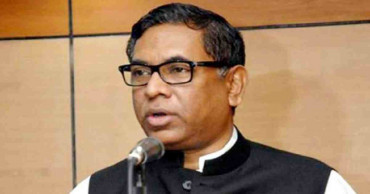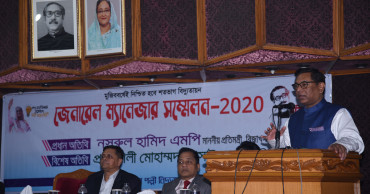power consumption
10 ways to reduce your AC power consumption and lower electricity bill this summer
The unbearable summer heat isn’t showing any sign of slowing down. Like every year, the summer season sees a boost in air conditioner (AC) unit sales across the country. This year, the heat seems to have come early as there are reports of heatwaves across the country.
After getting AC units, there is the additional headache of higher electricity bills. While AC may bring relief during the simmering hot weather, it also generates hefty cost at month-end. However, there are some ways to reduce the power consumption of AC and lower the bill. Here’s how.
Effective Ways to Reduce AC Power Consumption
Use a Programmable Thermostat
Thermostats are a great way to reduce AC power consumptions. This nifty little device can intelligently sense the temperature of the room and can perform pre-programmed actions based on the said temperature.
For example, a user can program the thermostat to shut down the AC after it reaches say 20 degree C. This way, the AC unit will automatically shut down after the room temperature reaches the desired level.
Thermostats are the best and most effective way of reducing AC power consumption as it ensures that the unit doesn’t keep running idly.
Read more: Inverter AC Prices in Bangladesh in 2023
Set the Correct Temperature
As a rule of thumb, a lower temperature on the AC unit will mean higher electricity consumption, resulting in higher bills. Many people often think setting the AC at the lowest level will cool the room faster or that it’ll be more comfortable.
But study shows that the ideal room temperature for humans should be between 20 to 24 degree C. So rather than setting the temperature at the lowest level, set it somewhere around 24 degrees to get the optimum comfort. Considering the local temperature, you can set the AC temperature at 25 degree C or above in Bangladesh.
Thus, you can minimize the electricity consumption for your AC unit and reduce bills.
Read more: Walton comes up with AC exchange offer
Clean and Replace AC Filters
AC filters keep the air inside the room clean and pure. A dirty or problematic AC filter can reduce AC efficiency by at least 15%. The lost efficiency will ultimately drive up the bills.
It is recommended to get the AC filter checked and replaced every 6 months. The AC will stay in pristine condition as well as maintain its maximum efficiency. The cost of replacement of filters also isn’t that expensive. Most filters are available after-market for about 1000 to 1,500 BDT.
Sealing the Air Leaks
AC works best in closed-off rooms. An open room will only let the cool air out, making it impossible to cool off the room. So it’s important to properly seal any leaks or openings in the room. Check the windows and doors for any potential leaks and get them sealed if there are any.
A closed-off room will cool down much faster, meaning less active time on the AC. This will help to significantly cut down on power consumption as well as bills.
Read more: Air Conditioner Brands, Buyer Guide, Models, with Price in Bangladesh
Turn on the Fan
AC air dissipates by the principle of diffusion. That is the cool lighter air moves slowly from one corner to the hot heavier air on the other. It is possible to speed up the diffusion process by using the overhead fan.
Just turn on the fan simultaneously as the AC and the room will cool down much faster than it would normally. The result is again less active time of the air conditioner and consequently reduced bills at the end of the month.
2 years ago
IGP asks police force to save electricity
Inspector General of Police (IGP) Benazir Ahmed on Wednesday directed all the police units to be frugal in power consumption in order to properly comply with government's regulations on power saving in the current context of energy crisis.
The IGP gave this instruction in a meeting held at the police headquarters on Wednesday.
The IGP requested all the police members to follow the call of the Prime Minister, 'I turn off the switch in my room myself'.
Read: Perform duties with new impetus: IGP
He said, for the national interest and welfare of the country, we have to be economical in the use of electricity.
The top official of Bangladesh Police has given order to limit the use of electric lights and AC in all the establishments of Bangladesh Police, including police headquarters. " Ensure maximum use of sunlight during the day," he adviced.
Additional IGs of Police Headquarters and other senior police officers were present in the meeting.
3 years ago
Power sector in Bangladesh: Surplus generation doesn’t mean disruptions gone
Bangladesh is now capable to produce more electricity than it consumes. Yet the consumers are hit by frequent disruptions in power supply, even in the capital city.
According to official data, the country has attained the capacity of generating over 24,000 MW of electricity a day as against the current daily consumption of only 13,000 MW.
Yet, in capital Dhaka, the major hub of power consumption, and other parts of the country users suffer from supply disruptions, a phenomenon blamed on poor transmission system, faulty distribution lines, renovation and repair works.
Read Rampal Maitree power project “to be commissioned in Dec”
Official record shows that a consumer in Desco-covered north-western and eastern parts of the capital experience interruptions on of average 13.77 times a year, while a consumer in the DPDC areas, south-western and central part of the city, faces 17.61 interruptions in the same period.
In technical term, it is called System Average Interruption Frequency Index (SAIFI) which is the average number of sustained interruptions per consumer during a year. It is the ratio of the annual number of interruptions to the number of consumers.
Similarly, the record on System Average Interruption Duration Index (SAIDI) shows that each consumer in Desco area live without power for 367.28 minutes (about 6.12 hours). In DPDC area, outages occur for 234.53 minutes (about 4 hours) a year.
Also read: Consumers to be urged to be more economical in power consumption
The figures of SAIFI and SAIDI have been taken from annual reports 2019-20 of Desco and DPDC. Energy experts believe the situation is worse outside Dhaka.
Dr Md Ziaur Rahman Khan, a professor of the Department Electrical and Electronic Engineering of Bangladesh University of Engineering and Technolgy (BUET), said SAIFI and SAIDI have been the two main measuring indicators to understand the quality and reliability of a power distribution network.
According to him, many developed countries, especially those in Europe, America and Asia, now maintain the zero figure in SAIFI and SAIDI in their power distribution networks.
Also read: Budget Power and energy sector allocation to increase by Tk 726 crore
Available statistics reveal that the SAIDI was recorded to 1.06 minutes in Singapore in 2019 while SAIFI was 0.052.
Prof Zia noted that though Bangladesh’s power generation has made a robust growth in recent years, still the country is much behind of India in ensuring quality distribution of power, though slightly ahead of Pakistan and Sri Lanka.
Other experts are also of the similar view as they said simultaneous attention should have been paid to both the distribution and the transmission along with boosting generation.
Also read: Bangladesh’s 40 percent power to come from renewables by 2041: Nasrul Hamid
“The government has failed to pay the due attention to the improvement of the distribution and transmission segments,” says Khandaker Golam Moazzem, research director of Centre for Policy Dialogue (CPD), at a recent webinar.
A recent presentation of Desco on power distribution reveals that it recorded 11,369 incidents of power interruptions in a year in its command areas in the capital.
Officials in the power sector believe the situation in DPDC area is worse than in Desco’s.
Read 10 coal-fired power projects scrapped as part of master plan revision: Nasrul Hamid
The Desco findings have identified the reasons behind the interruptions: faults in cables, insulators and high-tension consumer equipment, objects hitting power cables, collapsing cables, fault in capacitor bank and fault in former loop.
Farid Hossain, a resident of Sector 7 in Uttara, said he experienced power cuts thrice a day last week in June, though for short durations.
Mahfuzur Rahman, who lives in Malibagh Rail Gate area, reported that power cut in his area is so common at it happens almost every day.
Read Renewable energy: 40% target ‘ambitious, but roadmap absent’
Similarly, some consumers in Siddeswari, Shantinagar, Jatrabari and many other areas in the capital also complained of regular power interruptions in their areas.
Desco Managing Director Kausar Ameer Ali said supply disruptions sometimes occur in its command areas, but that is not a regular phenomenon.
“These irregular interruptions happen either for maintenance work or sudden fault sometimes develops in the system,” he said, adding that the situation is gradually improving as Desco has been implementing a good number of projects to make it better.”
Read CPD calls for discontinuation of Speedy Supply of Power and Energy Act
He said projects have been taken to take overhead cables underground and set up adequate substations. “Once these projects are implemented, the situation will improve substantially,” he told UNB.
Similarly, DPDC Managing Director Bikash Dewan admitted some interruptions in his power distribution network, including in Shantinagar, Siddeswari and Malibagh Rail Gate areas.
He said interruptions occur for weaknesses in the distribution network. “But sometimes it happens for which consumers are responsible,” he said.
Read Initiative soon to remove discrimination in gas supply: Energy Secy
Dewan noted that in many areas when construction materials or any unwanted objects fall on power cables, which are mainly bare conductors, the system trips and interruption takes place.
He says work to replace overhead cables with underground ones are on. Bare conductors will also be replaced with insulated cables to prevent interruptions.
Dewan, however, said the Covid-19 pandemic is delaying the implementation of these projects.
Read Grant financing deal of EUR 12mn signed to support power, energy sector
4 years ago
Respond digitally to applications: Nasrul to power utility bodies
Power utility bodies have to respond to consumers’ applications for power connections digitally, State Minister for Power, Energy and Mineral Resources Nasrul Hamid said Sunday.
5 years ago
New project to cut 22 industries’ power consumption by 43 pc
As part of its national goal to bring down the overall energy consumption by 20 percent by 2030, an energy efficiency project is underway in 22 industries which is expected to reduce their overall power consumption by 43 percent.
5 years ago
Walton AC consumes power worth Tk 3.74 per hour: Buet test shows
Test result from Bangladesh University of Engineering and Technology (BUET) showed that the air conditioners of the country's electronics giant Walton have very low power consumption.
5 years ago
Work to raise power consumption to 1000 kWh: Nasrul to BREB officials
State Minister for Power, Energy and Mineral Resources Nasrul Hamid has urged officials of Bangladesh Rural Electrification Board (BREB) to pursue rural people to raise their electricity consumption to 1,000 kilowatt-hour (kWh) from existing 98 kWh.
6 years ago

.jpg)









